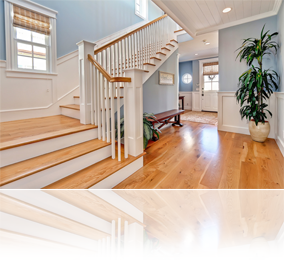
Say you’re a homeowner wanting to sell your two-level, detached home. You sit down and make a list of things that need to get done to make your property as attractive as possible to buyers.
You consider the backyard. “Hmm,” you think. “Doesn’t our deck need a new finish and our flowerbed need new edging stones?”
Then you think about the living room. “The carpeting is old. We really should replace it.”
Then you step into the kitchen and think, “Our kitchen cabinets look worn. We should get a contractor to quote on replacing them. Maybe we should install a brand new shiny sink and faucet too. That should increase the resale value of our home, shouldn’t it?”
Before you know it, you have a long list of updates, repairs and renovations that you think should be done before listing and you haven’t even reached the second floor!
It’s easy to get carried away with a list of repairs and upgrades that need to be done to prepare your home for the market. But, you don’t want to end up spending more money than you’ll ever get back from the eventual sale. So, how do you determine what improvements you should be making in order to get your property ready to be listed?
That’s easy. Talk to a good real estate professional.
A real estate professional can inspect your property and advise you of the repairs and upgrades you need to make. A real estate professional will know what buyers are looking for, and will also have a good idea of the return on investment you can expect from a particular improvement.
A real estate professional may also be able to recommend reputable tradespeople and other professionals to assist you in making those improvements.
So go ahead and make that long list. Then, let’s review it, so you can make an informed decision on how to get your property ready for sale.









